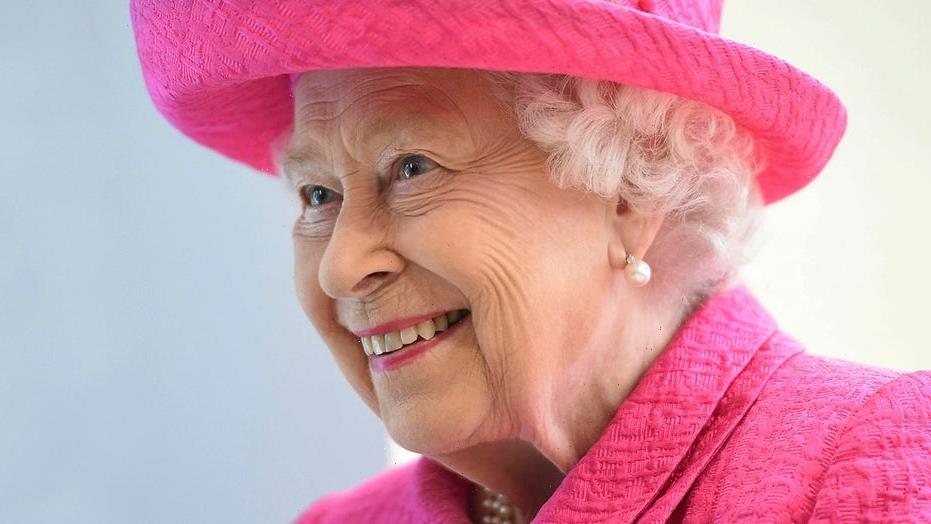A DISEMBODIED male voice crackled over my iPhone speaker as I nervously awaited my turn to share. “Before we go to Jason . . .there’s something like 48 people in this room,” the man said. “I’m just curious: Out of all the people in the audience, how many of you have not heard of, or have not tried, semen retention?”
The speaker, Solay Rad, didn’t mean room in a literal sense. The financial advisor was moderating a conversation on Clubhouse, the popular voice-only social-media platform you’ve probably heard about by now, thanks to high-profile users like Elon Musk, Drake, and Oprah. If not, think of the app as a fusion of Reddit, TED Talks, and LinkedIn. You can navigate through a feed of live conversations—your “hallway” and “rooms,” in Clubhouse speak—and pop in and out of the ones that pique your interest (semen retention, for one). Whenever they want, a moderator can move you from the audience to join the other speakers “onstage.”
When I started using Clubhouse at the beginning of the year, I was excited to see rooms with names like Men’s Group and Men’s Mental Health: Inspiring Stories, where mods were inviting men to get vulnerable and share their feelings—or so it seemed at first glance. I was a prime candidate. In my teens and 20s, a personal battle with sexual performance anxiety made it difficult for me to be emotionally available to others. Working with a psychologist helped me overcome the performance anxiety, and learning to be open about uncomfortable feelings helped me overall. I’ve attended plenty of men’s discussion groups, where guys sit in a circle and talk feelings. Sounds corny, but they’ve made me feel less alone, and I hoped these Clubhouse rooms might mimic that cathartic experience of getting stuff off my chest.
Clubhouse’s founders, Paul Davison and Rohan Seth, seem to have a similar vision. “The intonation, inflection, and emotion conveyed through voice allow you to pick up on nuance and form uniquely human connections with others,” they wrote on the company blog last July. (Clubhouse’s press team didn’t respond to my request to interview the founders.) I wanted in.
The anxiety and loneliness brought on by the pandemic had left me especially eager to form those “uniquely human connections” with like-minded guys. Which is how I stumbled into the What Is Semen Retention? room, a conversation about the supposed physical (and spiritual!) benefits of denying yourself ejaculation. “We’ll go to Jason next,” Rad said. “Jason, what’s on your mind? Please share.” I unmuted and explained how I’d tried the practice during my bedroom struggles but ultimately abandoned it.
“Some of us who’ve tried semen retention, we’re like war-level propaganda about it,” Rad answered with an air of practiced warmth. “But I do want to create balance in this room, so really grateful for Jason being up here.” Was he, though? Unlike some of the earlier participants, I was swiftly removed from the stage. It was like the music had started playing during my Oscar acceptance speech. Had I done something wrong?
“Clubhouse is smack in the middle of its gold-rush phase, with users flooding the platform by the millions and influencers pouncing on the opportunity with varying degrees of tact.”
Rad is the founder of Men’s Tribe, the semen-retention room’s overarching masculinity-focused “club”—basically the Clubhouse equivalent of a Facebook Group. “We have a following of men who have been to our other rooms, and they get the energy,” he told me after the session. “We might call on them first so that it sets the tone for the type of sharing and the level of vulnerability that is expected.”
Initially, I concluded that my semen retention story hadn’t been deep enough. But after talking more with Rad, I learned that, in addition to running a wealth management business, he has a coaching business that offers master classes on topics like wealth creation, sexual mastery, and—hold up—semen retention as part of a dopamine detox class. He also teaches “high-conscious sales,” a practice he described as the ability to “sell from a space of connection…instead of trying to manipulate and close.”
I wanted to take him at his word when he said he doesn’t use Men’s Tribe to seek out clients, but I couldn’t ignore a nagging feeling that it might not be the case. As to potentially soliciting clients through Clubhouse in the future? “Maybe,” he said. “I guess so.”
I told myself I’d had a one-off weird experience, and I kept exploring. In a room called Truth Tellers, a dozen men shared their experiences with impostor syndrome. I spent a half hour listening to their pass-the-mic style of conversation and eventually shared my own story. The men onstage toggled their mute buttons, causing the microphone icons on their profile photos to flash—the Clubhouse version of applause. Later, a college student came onstage with a party-hat icon, meaning he was new to the platform. He asked how to deal with impostor syndrome amid the pressure of the Ivy League. A handful of men, including me, offered heartfelt advice. I was optimistic about the integrity of the experience.
“I don’t even think about [making money off Clubhouse],” Truth Tellers founder Shawn Nason later told me. “What I think about is, can we reach the men we need to reach? And I believe if we do that, a monetization piece might come out, or it might not.” A day after our follow-up conversation, I received an invite from a Truth Tellers community moderator to Nason’s virtual book tour.
I had a similar experience in a room called Men’s Mental Health: Inspiring Stories. To get the conversation started, the leader, Adam Hindley, shared that he’d struggled with body dysmorphia. Other men shared difficult moments: issues with drinking, thoughts of suicide. But again, there was a catch: Hindley and two colleagues run a physical- and mental-health performance coaching business in the UK, where they charge £747 (a little over $1,000) for a six-week program. Toward the end of the talk, Hindley offered his number-one tip to improve mental health: “Having a coach. Even the best coaches have coaches.” It felt like an over-rehearsed play.
When I later spoke to Hindley, I shared my concern that Clubhouse’s “safe spaces” might actually be “sales spaces.” He seemed earnest in his intention to help men “turn their mess into a positive message,” but he also admitted that Clubhouse is, in effect, “the top of the [sales] funnel. That’s where the majority of people come in to find out about our Facebook Group and our trainings.”
Mariah Wellman, a Ph.D. candidate studying social media and its influencers at the University of Utah, says the behavior I encountered in the masculinity-themed groups and elsewhere on Clubhouse was indeed influencer marketing. “The old business model was ‘I create this thing, then I go figure out who it’s for, and I market to them,’” Wellman says. “Now it’s ‘I am a human. I’m going to make human connections to all these other people, and then eventually I’m going to make a product and, because these people like me as a human, they’re going to buy it.’”
After visiting more than a dozen similar rooms, I wandered ambivalently into one called Men’s Group, where I noticed that the lead moderator, Kapil Gupta, was a self-described “Master Coach” specializing in “transformation.” Here we go again, I thought, bracing myself for discomfort.
Gupta welcomed ten new audience members to join him onstage. “If you haven’t been part of Men’s Group before, it’s nothing to be scared of,” he announced. “It’s quite a vulnerable but fun experience.” I listened as he and his comoderator laid out the protocol for the room by demonstrating how the other men should share. “There’s a weird sadness in my system,” Gupta said as he described how disconnected he’d felt that past week. The way he slowly unspooled his emotions seemed to help other men do the same.
As Gupta wrapped up the session, I was shocked to realize that the discomfort I’d expected never set in. It had been the closest thing I’d experienced to a real-life men’s group on Clubhouse. Had I found the pure human connection I’d been looking for, or was Gupta just that good a soft salesman?
The answer turned out to be both. Gupta told me he avoids soliciting clients from Men’s Group, but he doesn’t have an issue with the practice overall—only with when it’s done in an underhanded way. “People who are tuned in definitely feel it,” he said. That had been the key difference between Gupta’s group and the rooms I’d visited before: how the experience felt. Gupta was raw and honest in a way I hadn’t encountered on Clubhouse; he conveyed his value as a coach simply by being himself. If that’s great marketing, more power to him.
The problem is, how many guys not on a Men’s Health assignment would persevere through all the slippery sales agendas to finally find a safe space like this? Clubhouse is smack in the middle of its gold-rush phase, with users flooding the platform by the millions and influencers pouncing on the opportunity with varying degrees of tact.
In the end, I might have found a few “uniquely human connections” in Clubhouse’s men’s groups, but the overall experience left me feeling the opposite of how I do during IRL discussions: disheartened and on edge rather than energized and free. Men’s discussion groups only work when everyone lets down their walls. It’s hard to do that in the digital Wild West, where your senses are on constant high alert for danger in the form of an influencer’s stealthy pitch.
This story originally appeared in the June 2021 issue of Men’s Health.
Source: Read Full Article



